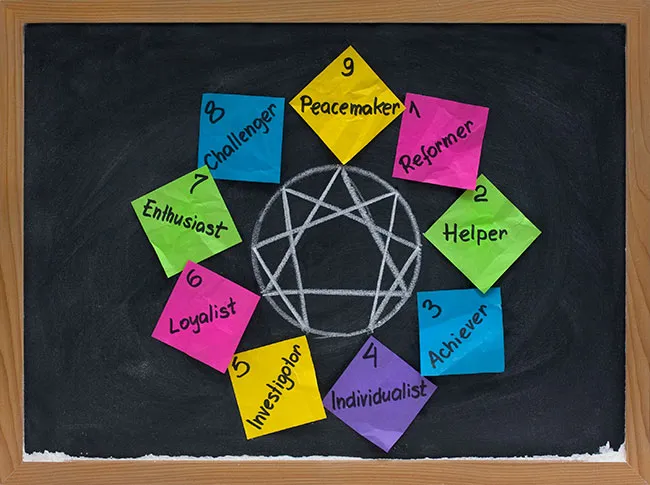Looking For A New Way To Improve? Try Self-Exploration.

It’s time to take a field trip into your mind.
This field trip is about getting to know yourself. During this time of transition, confusion and stress, you can take the extra moments that you once spent commuting or going to movies or traveling and spend them exploring different components of who you are. Use this time to self reflect — in these moments, think about why you think or feel a certain way about something and everything.
Think of this as an introduction to you. It’s amazing how different life is when you understand more about who you are, what you want and what your needs are.
Of course, everyone is different. Being human is complicated and so are these topics. This blog is a brief summary of some basic philosophies and concepts in self-exploration.
Here you will learn some tools to help you improve yourself. Remember, the better we know ourselves, the better we can take care of ourselves and the better we can care for those around us.
Are You an Extrovert or Introvert?
While many have misconceptions about what it means to be an introvert or extrovert, in general, they mostly have to do with where you get your energy from: by being with others (extrovert) or by being alone (introvert).
If you are an extrovert among friends or an introvert in the comfort of your own company, your brain releases the right chemical to support your happiness and well-being.
Extroverts: Extroverts need more stimulation from activities and human interaction to get energy. You need people to help you process decisions or challenges and to talk to if times are rough. If you are not getting enough time with people and activities, you become drained, unmotivated and unhappy. Your brain needs dopamine, which comes from stimulation.
Introverts: Introverts need less stimulation from activities and human interaction. You get energy from being alone. You need to be by yourself if times are rough. If you don’t get enough alone time, you become drained and unhappy. Your brain needs acetylcholine, which comes from less stimulation.
Ambivert: Ambiverts have a mixture of traits of both extroverts and introverts. You fall somewhere along the range of 55% one and 45% the other. You are likely either an extrovert or an introvert with many tendencies of the other. As an example, you could be an introvert who needs a person to talk to if something is difficult. There are many components that determine what makes a person extroverted or introverted, so which parts of you fall where will take time to figure out.
By exploring this personality trait, you’ll learn if you need more stimulation from others or less. You may discover why you feel so drained after parties or gatherings and so alive after a night of peace and quiet. You may discover how to fill your cup when you need it most.
Want to know if you are an introvert or extrovert (or somewhere in the middle)? Check this out.
What Are Your Love Languages?
Never heard of love languages? They are basically the way people give/receive affection and give/receive care. This can be applied to every relationship in your life.
Most people have two main primary love languages or one primary love language with a second one being important but not as important. Generally, the way people show care for others is the same way they receive care.
The five love languages are:
Quality time
Words of affirmation
Acts of service
Gifts
Physical touch
Here is what each love language looks like:
Quality Time: You value time with other people. And it’s not just their time that you want, but their undistracted attention as well. Their focus is on you. You feel cared for if someone puts the time and dedication into planning something with you. You don’t like getting cancelled on, and you feel especially hurt if friends or family don’t follow through on plans to hang out.
Words of Affirmation: You value people genuinely giving you compliments and encouragement. You feel cared for if this is said regularly with good intentions and emotions behind them. In work or in relationships, you may seek verbal validation.
Acts of Service: You value someone doing something for you, especially something that you need, don’t have time for or don’t want to do. You feel cared for because it shows consideration for you and the act makes your life easier. You may be the type of person who builds a flower bed for their partner (instead of buying her or him flowers).
Gifts: You value thoughtful presents. It can be that a friend paid attention to something you said you liked or found something with sentimental value or just bought you something that is so you. You feel cared for when someone gives you a gift that shows just how well they know you. And you may love opportunities to show people how much you love them by showering them with presents.
Physical Touch: You value having another person’s presence close by or right next to you. You feel cared for if someone hugs you or puts their arm around your shoulders or cuddles with you.
Love languages are valuable because they open up conversations with your partner, your friends, your family about how they can show you love — and how you may show them love.
You can also let others know how to care for you. There is often a disconnect because people think they are showing they care about you, but you might not feel loved. Or vice versa. You may wonder why your spouse doesn’t appreciate all your progress on the landscaping; you need to explain that all that hard work is you expressing love.
Which love language do you speak? Find out here.
What Are Your Tendencies?
The four tendencies — or “habits,” as author Gretchen Rubin also calls them — refers to how you handle internal and external expectations.
Internal expectations are the ones you have for yourself. External expectations are the ones others have for you. These could be expectations from work, school, family, etc.
When you discover your tendency, you learn how you respond to all expectations. You could be a rebel, obliger, upholder or questioner:
Rebels: If you are a rebel, you don’t like having things expected of you — either from yourself or from others. You want to do things your own way and on your own terms. You are self-driven.
Obligers: As an obliger, you meet other people’s expectations well, but tend not to meet your own. You do better when you are held accountable by others. For example, you can easily meet friends for a regular yoga class, but if you want to do something on your own, you might struggle to make it happen.
Upholders: Upholders tend to meet inner and outer expectations pretty well. You can be too hard on yourself/others and sometimes focus too much on yourself.
Questioners: If you are a questioner, you look at both internal and external expectations and immediately analyze them by asking, “Why?” You will likely only follow through on what you see as worthwhile or making sense to you.
Once you know which tendency you are, this will help you figure out how to set up habits and practices to help you succeed in meeting expectations. For example, obligers who are held accountable by bosses, coworkers or friends will succeed in meeting expectations.
Curious about your tendencies? Take this quiz.
What’s Your Personality Type (i.e., Your Enneagram Number)?
Using a framework called the enneagram, this model explores nine personality types. Each personality is assigned a number, one through nine.
Using the enneagram, you will find out which main type/number you are. You also discover your “wings,” the other numbers with which you may share traits.
There is a ton of thought and psychology that goes into the enneagram, and it’s easiest for you to take the test, discover your number and dive into tons of information about you.
The enneagram helps you figure out your own thinking, feeling and behavioral patterns and what causes them. It gives you guidance on your strengths and weaknesses. Knowing this will help make you aware of the roles you play at work, in relationships or on a team. Even better, take the test with friends, family, your children and your partner to discover how you can improve communication, avoid conflict and thrive together.
Interested? Here’s the test.
While people may temporarily change qualities or characteristics during trauma and stress, what you find helps you now isn’t necessarily what will help you during a healthier, less stressful time. Remember, this journey is a work in progress. There are many sources of information on these topics, so I hope you keep searching and growing.
Happy self-exploration journey! I toast to your well-being.


